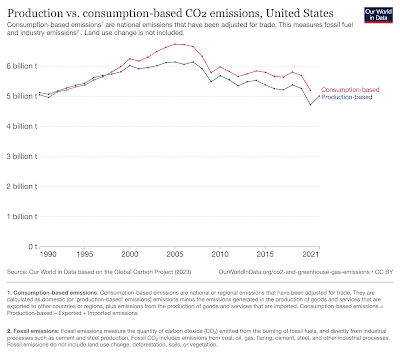Climate myths that MUST go - Part III
This post is Part III of the series "Climate myths that MUST go". I urge the readers to read the previous posts first, to be able to make sense of this one. ← Myth #1: IPCC = COP ← Myth #2: Climate models are faulty because they are inequitable Myth #3: Climate system metrics = Socio-economic metrics I will admit, this one is trickier to summarize in one neat title line. So if anyone has a suggestion for the line above, they're certainly welcome. But first, let me try to explain what I mean by this strange line. I assume that the reader understands these two facts: (i) Carbon dioxide is a well-mixed gas. Country of emissions do not matter to the climate system. (ii) Carbon dioxide has a long residence time in the atmosphere. After emission, it stays in the atmosphere for a very long time (decades-centuries). These two facts are incontrovertible and unchangeable, discovered by observations of nature. There is no point in "having an issue" or "not agreeing...

